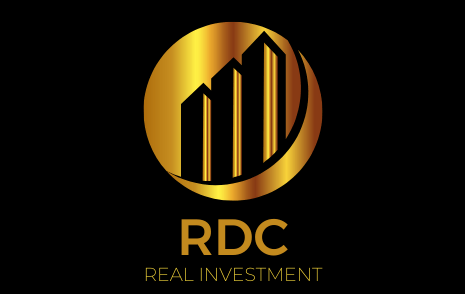401k: The Questions You Need to Ask Yourself
A 401k, a preferred retirement savings plan among US company employees, provides a tax-favored means to save for one’s retirement. Contributions are made using pre-tax dollars, and the funds experience tax deferral until retirement. However, before opting for a retirement savings plan, you must probe four questions related to your financial and retirement planning. This article aims to shed light on all you should know about retirement savings plans.
What’s the Difference Between a 401k and a Traditional IRA?
Two retirement savings plans are not created equal. The traditional Individual Retirement Account (IRA) is among the most prevalent plans. It is a tax-advantaged vehicle that enables you to save money for retirement income. Contributions to an IRA are made with pre-tax dollars, and your money experiences tax-free growth until you withdraw it. The most significant advantage of traditional IRAs is that they are legible to withhold. If you earn $1,000 in income, they anticipate you save $400 in pre-tax money. In retirement, you can withdraw the money tax-free.
To cater to these varying ways of saving, you have two IRA options. Paperwork is crucial to understand for both your 401k and IRA.
To accommodate these different ways of saving, you have two IRA choices

A personal or defined benefit plan contributes significantly to your retirement with matching employer contributions. Employers deposit a specific amount into your account annually. However, note that employer satisfaction does not necessitate these benefits. Still, contemplating the job offer? In that case, delve deeper into the company’s shift in outlook, ideas around advancement, what’s unique about your office, and how you can perform under pressure. Everything to know: What is a 401k vs a traditional, and what is the difference between a 401k and a traditional IRA.
What Are the Most Common Mistakes Investors Make Before Retirement?
A 401k is a retirement savings account enabling you to save for retirement using pre-tax money. Contributions are usually made through payroll deductions, and the funds experience growth over time as they earn investment income. Upon reaching retirement age, you can begin withdrawing distributions from your 401k account.
Here are some essential notes on 401ks:
- You can only contribute up to $18,000 annually to a 401k.
- You must be at least 21 years of age to contribute to a 401k.
- You can’t contribute to a 401k if you earn over $120,000 annually.
- You must begin contributing to a 401k within 60 days of your first job.
- You can contribute up to 18% of your income (if you are under 50) or $54,000 (if you are 50 or older).
- You can only contribute to a 401k through payroll deductions.
- You can’t contribute to a traditional IRA.
- Contributions to a 401k are tax-deductible.
More Information You Need to Know About 401k

9. If you are self-employed, you can contribute up to 25% of your income.
10. Your employer can choose to match your contributions.
11. You can roll over your 401k to an IRA upon retirement.
12. You can contribute to a 401k even if you are not yet 50.
13. You can withdraw your contributions at any time, but you still have to pay taxes on earnings.
14. Your employer can offer this plan to other employees in your company.
15. You can contribute to a 401k if you are a federal employee.
16. You can contribute to a 401k with both a traditional IRA and a Roth IRA.
The pitfall of neglecting the commencement of wise investing could wreak havoc on your finances.
Don’t be fooled into thinking that pooling all your savings into a single account is an infallible approach to securing your assets.
Instead, it’s wise to open various savings accounts that offer disparate interest rates. This affords you a diverse array of choices to safeguard your funds and alleviate the ambiguity of your wallet, enabling you to distribute the vulnerability of your investment assets across a broad spectrum of investment vehicles.

What Are 401k Fees?
401k Retirement Savings Plans have always been a perennially popular investment alternative for Americans looking to save for retirement. However, with the democratization of investing and tech-based 401k providers, the landscape has become increasingly complex and bewildering. The sheer range of choices available can be overwhelming.
Moreover, opting for one 401k option over another often comes with the cost of fees. These fees can range from literal pennies on the dollar to multi-teens on the dollar, depending on the provider and the investment options they offer. Some Retirement Savings Plans providers are following in the footsteps of their supermodel contemporaries by offering super-discounted fees. However, others are engaged in pure-churn-like promotion strategies to generate fee revenue.
To make matters worse, not all 401ks are created equal. Naturally, heart-healthy 401ks or those with precious metal investment options are the best options for setting this fee policy in motion- but the game is not over. There are still a multitude of factors to consider when selecting the right 401k for you.
Consequently, you will need to understand the different 401k fees, how companies can lower them while offering competitive 401k investment options, and what can (or cannot) you do to cut costs at your chosen investment provider. This requires a deep understanding of the investment landscape and a willingness to stay on top of changing trends and best practices. It is a dizzying and disorienting journey, but one that is well worth the effort for those who want to secure a comfortable retirement.
When Should I Start Saving for Retirement?
The quandary of planning for retirement is a perplexing one for the majority of individuals. Thus, it is mainly due to uncertainty about the ideal time to begin amassing assets and saving up for the golden years.
There are those who assert that it is too premature to set aside money for retirement and opt instead to invest in real estate or park their funds in a savings account.
Others choose to dabble in the stock market, funneling a portion of their profits into a 401k investment plan. However, engaging in such behavior may prove to be a disservice to oneself, potentially setting up a slippery slope toward defeat.
The critical factor to consider is the after-tax component, as it is the determining element in the calculation of your retirement nest egg.
401k contributions are tax-exempt from an employer’s viewpoint, but that alone does not guarantee a secure and profitable future for oneself. Therefore, it behooves you to ask yourself vital questions, such as when to start saving, how to invest wisely, and how to maximize returns while minimizing risks. On the other hand, you can invest in stocks to put some of the profit into your 401k investment plan.
401K Detail Plan

Moreover, the remuneration that has been remitted from your payroll is allocated toward your pension plan. Upon your retirement, you shall receive your pension with an added interest rate, which has been accruing throughout your entire career.
Your pension is structured to provide a guaranteed payout, usually with a predetermined amount based on estimated earnings. However, this is only guaranteed if you continue in your current employment for a quarter of a century and retire at the age of 65, with a yearly salary increase of 10%.
If you decide to retire at age 55, your retirement funds will expire, and you will need to seek out other savings that you have set aside for retirement emergencies.
It’s an ideal opportunity to enjoy newfound freedom, build your nest egg, and multiply your wealth at the halfway point of your sixth decade.
Practically everyone has a 401k, and it’s one of the most prevalent retirement plans available for good reasons. If you make the correct investments in your retirement savings plan, it could be an excellent investment for your future.
Saving for retirement through a plan is often a wise financial move. However, it can be perplexing to determine how to maximize the potential of your 401k.
It is crucial to seek the advice of a financial consultant after selecting your optimal retirement account plan.
Conclusion:

RDC (Real Daily Cash) has blessed you with a highly coveted investment strategy that will keep your retirement plan thriving for the long haul. You need to be thinking ahead and considering a retirement saving plan that can help you save up the dough. Trust us, mutual funds should be on your radar too.
We don’t want to waste your precious time, so we’ve compiled a simple guide that provides you with the real questions you need to know to get the most out of your 401k. And guess what? We’re not stopping there.
We’ve got more questions that will help you reap all the rewards on your 401k journey. This guide is perfect for anyone who wants to dive into retirement saving plans, or who is already knee-deep in it. We’re handing you the keys to the kingdom, so start exploring and educating yourself on 401k plans.
We know you’re eager for more, so let’s get to it. Here are the four questions that everyone with a retirement saving plan needs to answer:
FAQ
1. What exactly is a 401k, you ask?
Well, it’s a retirement savings plan that lets you stash away cash for your golden years on a pre-tax basis.
This slick little number is a tax-deferred investment vehicle, allowing you to build up a juicy nest egg while scoring matching contributions from your generous employer. The total value of your 401k is the sum total of both your contributions and your company’s match.
2. Who should be kickin’ in to a 401k, anyway?
Typically, contributions are deducted right outta your paycheck, with the funds in your 401k gradually growing through the magic of investment income.
3. What should you do with your 401k when you’ve got one?
Well, after you’ve got your ideal retirement plan all picked out, you’ll definitely wanna have a chat with a financial advisor.
If you’re not sure how to get started on your retirement savings journey, this is the question to ask.
At the end of the day, the name of the game is to save as much moolah as possible for your golden years.
Get ready for a bonus round of 401k knowledge that will blow your mind! Check out the juicy details in the business section of your favorite newspaper to get the lowdown on everything 401k. Don’t miss out on the insider secrets that will help you maximize your retirement savings.
If you’re feeling lost and don’t know where to start with contributing to a retirement plan, fear not! This burning question will be your guiding light to financial freedom.
The main idea behind a 401k is to stash away your hard-earned cash for retirement, so you can live your best life without having to work until you’re ancient.
So what are you waiting for? Dive into the deep end of the 401k pool and swim your way to financial security.
More Questions you should know:

4. What can you contribute to a 401k?
Well, contributions to a retirement saving plan are usually taken out of your paycheck before you even see it! That’s right, payroll deductions make it easy to save for your golden years. And what’s even better? Your 401k account grows over time thanks to investment income. Now, I know you’re probably wondering about the specifics.
How much should you contribute?
The minimum contribution is $6,000 per year. But if you’re under 50 years old, you can contribute up to $18,000 per year! And if you’re 50 or older, you can contribute a whopping $54,000 per year! That’s a lot of money to secure your future.
Are you ready to start saving for retirement? We hope so. Thanks for taking the time to read our tips. If you found them helpful, be sure to like, comment, and share with your friends. Let’s all retire comfortably together!
Do you have a retirement saving plan? Comment below!


